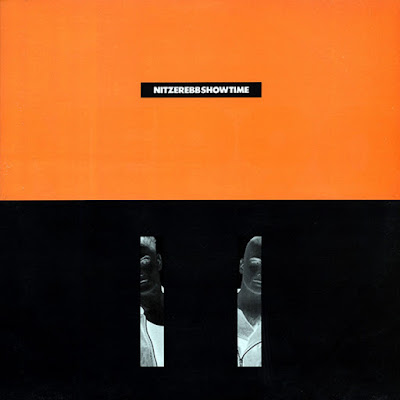...or just The Big Bigot as was its initial Australian release. One thing I've taken from conversations with Glenn Wallis of Konstruktivists, and which has stayed with me, is the importance of layering when mixing a record. Glenn had strong opinions on mixing, often insisting greater effect was to be had with certain sounds or instruments some way down in the mix, half heard and not always obvious on first listen. This, as I've found, gives the ear more to work with, achieving effects and juxtapositions which you just don't get with the bog standard mix which strives to leave everything on more or less equal footing in the overall sound, and which is usually the mix for which everyone else will settle. Part of this is simply paying attention to the treatment of the original sounds so as to avoid music from which you can identify the exact synth, drum machine or whatever within the first minute of listening - which is how Depeche Mode have always sounded to me, at least before the leather trousers.
Anyway, whatever the fuck it is I'm referring to has one of the most powerful demonstrations of its validity in the back catalogue of the Severed Heads, and particularly on this record, possibly their greatest to my ears, although it's a tough choice between this, Haul Ass, Rotund For Success, and er… probably seven or eight others.
The Big Bigot is, I suppose, synthpop by virtue of tunes, song structure, lyrics and so on, and these are songs which really tear your fucking heart out; yet it's often difficult to tell what the Severed Heads were doing that apparently no-one else has considered. Beyond the bass, the rhythm, the pensive yet arrestingly cheery melody, there's all sorts of sampled or looped clutter in the mix gurgling away, and yet none of it sounds arbitrary. Somehow the whole always blends into something so beautifully arranged as to suggest old masters more than abstract expressionism, as it probably should. It's that deal with a tornado blowing through a scrap yard to assemble a jumbo jet, and I can only assume that an approach similar to that described by Glenn Wallis must be responsible. It feels as though random elements have worked together to carve out songs equivalent to Plato's perfect solids, compositions existing in the subatomic underpinnings of the universe channelled and brought into being by Tom Ellard and occasional pals. There's nothing here to remind you of anyone else or how anyone else works, nor anything that anyone else has been able to duplicate. I've been listening to this record for more than thirty years and I didn't even realise there's a Clapton cover on side two.
So what does it sound like, given that the above is probably less than helpful as descriptions go. Confidence! sounds like being trapped in the head of a terminally lovesick teenager with a near death experience for a chorus. Harold & Cindy Hospital begins as big band for malicious elephants and ends up getting Raptured in the evangelical sense. Legion is the most terrifying song you've ever heard that doesn't involve either distorted guitars or metal types pulling faces - it really feels like it's coming for you. I don't know, and I'm not even sure what the songs are about, but there's something Biblical going on in this unnerving euphoria threaded through with something weird and dark, almost old testament, without having delivered any of the cues which might usually lead to such conclusions. It shouldn't work, but it does, and it's genuinely glorious. If Legion doesn't bring a lump to your throat at the very least, are you even alive?




